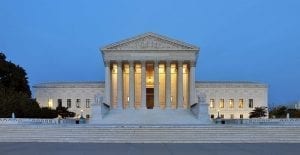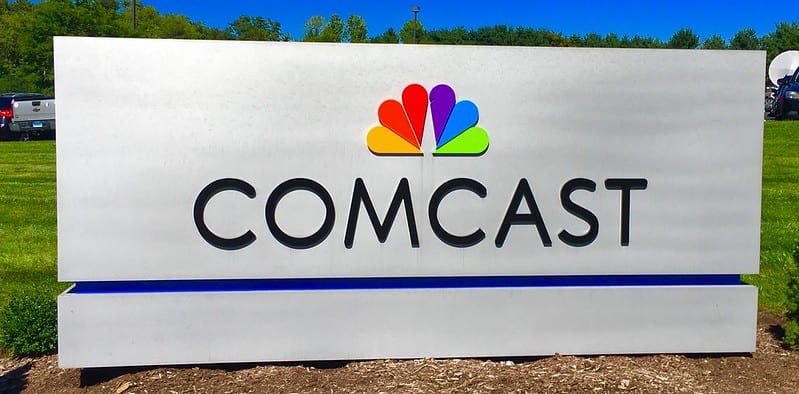Allen says that Comcast considered his race when rejecting a contract they’d initially seemed eager to approve.
The U.S. Supreme Court heard a contentious series of arguments between Comcast and Entertainment Studios founder and CEO Byron Allen.
CNN reports that Byron, an African-American ‘media mogul,’ sued Comcast for discrimination in 2015. The suit’s been winding its way through the courts ever since, attracting attention from some of America’s most recognizable names in progressive politics. As CNN notes, U.S. Sens. Cory Booker and Kamala Harris—both presidential contenders—have lent support to Allen. They, along with the National Association for the Advancement of Colored People, say a loss at the Supreme Court could set civil rights plaintiffs back by decades.
However, Comcast contests that, saying Allen’s claims could make media vulnerable to a flurry of half-substantiated discrimination lawsuits.
Comcast—among the biggest telecom providers in the continental U.S.—services more than 55 million combined cable and internet subscribers. Allen says the company considered his race when it decided not to carry Entertainment Studios channels, including JusticeCentral.TV, Pets.TV and Recipe.TV.
Declining Allen’s offerings on the sole basis of his race would violate Section 1981 of the Civil Rights Act of 1866, which bars discrimination against non-white individuals in contracts. And Comcast, adds CNN, has been legally obliged to Section 1981 since its 2009 acquisition of NBCUniversal.

Allen and his attorney say that, despite complying with Comcast’s channel-hosting guidelines, they never managed to secure a deal, even though the company carries “lesser-known, white-owned networks,” like FitTV and the Outdoor Channel.
But Comcast maintains they’re not interested in Allen’s offerings for wholly pragmatic reasons, including concerns about low viewership. Company representatives noted that Comcast broadcast African-American owned stations like Sean Combs’ RevoltTV.
Three lower courts have already ruled against Comcast on or before October 9th of last year.
However, Allen was given an extension by the 9th Circuit Court of Appeals, which determined that Allen simply needs to prove that race was at least one motivating factor in Comcast’s rejection. CNN says the case’s central component is the “but for” standard—whether the contract would’ve gone through “but for” one party’s perceived racial identity.
Justice Sonia Sotomayor focused on the Allen’s assertion that Comcast gave his company recommendations on how to move forward with station hosting, then opted to hose the application later on.
“Why is that not actionable?” Sotomayor asked. “As long as you have enough in your complaint to show racial animus and a reasonable inference can be drawn that that’s a but-for cause, I think a plaintiff has done more than enough.”
While Allen’s pleased that the court seems to be taking his case seriously, Comcast has reaffirmed its faith that it’ll eventually be vindicated.
“Comcast has a strong civil rights and diversity record and an outstanding history of supporting and fostering diverse programming from American-American [sic, presumably African-American] owned channels,” CNN quotes Comcast as saying.
Sources
Comcast is trying to “dismantle” Civil Rights Act of 1866, MLK’s daughter says
Supreme Court debates merits of black media mogul’s discrimination suit against Comcast


Join the conversation!